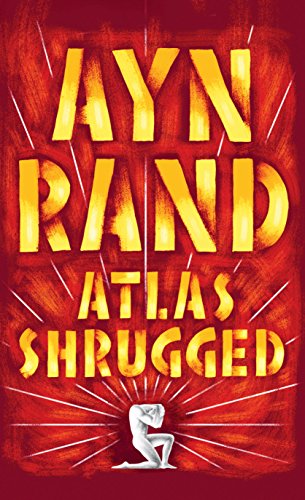Title: Atlas Shrugged
Author: Ayn Rand
Publisher: Random House
Genre: Philosophical fiction
First Publication: 1957
Language: English
Major Characters: Dagny Taggart, John Galt, Prometheus (mythology), Atlas, Hank Rearden, Francisco d’Anconia, James Taggart
Setting Place: The United States
Theme: The importance of the mind; the evils of collectivism; the need to integrate mind and body
Narration: an anonymous third-person narrator focusing mainly on Dagny and Rearden, but following all the characters.
Book Summary: Atlas Shrugged by Ayn Rand
Who is John Galt? When he says that he will stop the motor of the world, is he a destroyer or a liberator? Why does he have to fight his battles not against his enemies but against those who need him most? Why does he fight his hardest battle against the woman he loves?
You will know the answer to these questions when you discover the reason behind the baffling events that play havoc with the lives of the amazing men and women in this book. You will discover why a productive genius becomes a worthless playboy…why a great steel industrialist is working for his own destruction…why a composer gives up his career on the night of his triumph…why a beautiful woman who runs a transcontinental railroad falls in love with the man she has sworn to kill.
Atlas Shrugged, a modern classic and Rand’s most extensive statement of Objectivism—her groundbreaking philosophy—offers the reader the spectacle of human greatness, depicted with all the poetry and power of one of the twentieth century’s leading artists.
Book Review: Atlas Shrugged by Ayn Rand
In early 1945, Ayn Rand embarked on the work which would eventually be considered her literary masterpiece. With a working title of The Strike, she diligently filled numerous notebooks, detailing her characters, plot, and theme, amongst others. Not for an audience, “but strictly for herself–that is, for the clarity of her own understanding,” writes her literary executor, Leonard Peikoff.
“These journals are also a fascinating record of the step-by-step birth of an immortal work of art.”
Atlas Shrugged by Ayn Rand is another of those novels which are classic because they create both an entertaining story, contain philosophical ideas and tie into historical events.
“If you don’t know, the thing to do is not to get scared, but to learn.”
The plot follows two central characters while also covering several other important individuals. However one of the two characters makes almost no appearance in the first three quarters of the book. Hence the mysterious question on everyone’s lips: ”Who is John Galt?”
It could be seen as a dystopian and a semi-science fictional type of novel for Atlas Shrugged is set in a fictional America where the government rules ‘for the will of the people’, seizing the assets of the wealthy in order to do so. The main protagonist Dagny Taggart blindly accepts this system as she tries to become the sole female entrepreneur in the fictional economy. Yet gradually she comes to see that the government is manipulative and self-serving and that she cannot continue to accept that system as proper any longer.
“I swear by my life and my love of it that I will never live for the sake of another man, nor ask another man to live for mine.”
The opening sentence is one of sheer brilliance. The question, “Who is John Galt?“, reels the reader in instantaneously, and is very reluctant to let up. The question really resonates. Partly due to its simplicity, Rand’s detail orientated, incredibly vivid prose kept me reading, completely in awe of her skilful way with words. More importantly, the classic inquiry is voiced time and again, which serves to further elevate the overall mystery and suspense, without becoming tedious.
Atlas Shrugged by Ayn Rand is populated with several diverse, well-developed characters. One such individual, Dagny Taggart, is a personal favorite. Superficiality aside, I love her for her unwavering convictions and determination, despite the fact that her somewhat shady actions oftentimes prove detrimental to her reputation (not that she cares.) I truly admire her, not solely for her bravery, but also for her flaws.
“Never think of pain or danger or enemies a moment longer than is necessary to fight them.”
While I read Rand’s books for her ideas and to better understand the application of her philosophy, they can also be read on many different levels. Through reading them, not only did I read an amazing story, carefully crafted and well rendered, but I also learned so much. However, one does not have to delve deep into Rand’s philosophical background to enjoy The Fountainhead or Atlas Shrugged by Ayn Rand — they are also great stories about human endurance, individualism, freedom, relationships, and integrity.
“What greater wealth is there than to own your life and to spend it on growing? Every living thing must grow. It can’t stand still. It must grow or perish.”
If you are reading Atlas Shrugged to gain an understanding of Rand’s philosophy, Objectivism, then I would recommend reading this book AFTER reading Ayn Rand’s other famous fiction, The Fountainhead. The Fountainhead is a more straight forward place to start that study.





